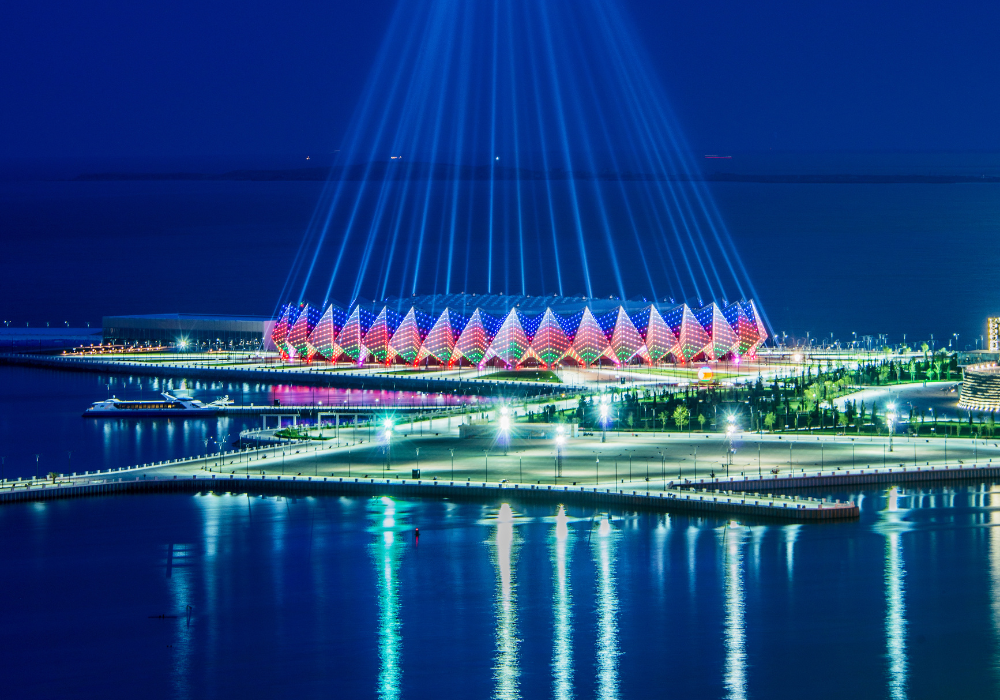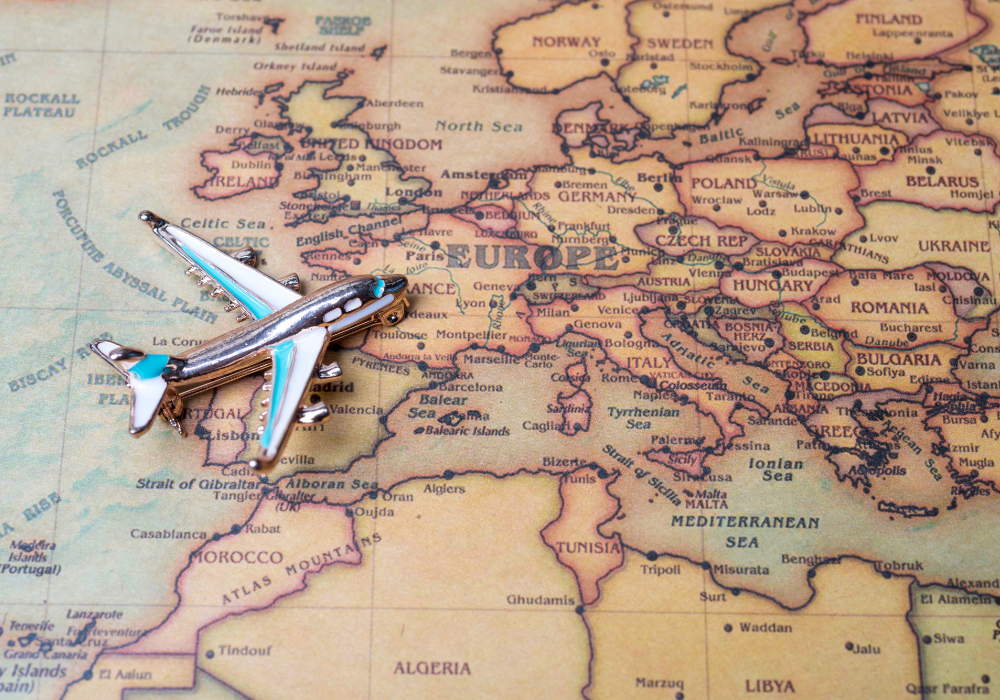Blog | 08 May 2024
Eurovision: Does the winner take it all?

Jessie Smith
Economist, Tourism Economics

Keen Eurovision fans may remember that when Sweden won the contest back in 2015, they weren’t too eager to host again as they were still paying off the cost of arranging the event two years prior. As the Eurovision Song Contest (ESC) returns to Malmö this year, we weigh the economic pros and cons of hosting the event.
A quirk of Eurovision’s design is that countries cannot self-select to host, as the role is bestowed upon the previous year’s contest winner. Host cities have mere months to pull off a showstopper event and broadcast to over 180 million people globally—and crucially, they’re not paid to do so. Funding the event relies on a combination of cash from the host city, broadcasters, sponsor ticket sales, and government funds (although sponsorship is making up an ever-increasing share of funding to reduce the reliance on taxpayer money).

The theoretical benefits of being a host city can be outlined quickly: more visitors equals more spending. Large events often drive demand for accommodation and push prices up. Last year, Liverpool saw the highest volume of hotel rooms sold in a month since 2018 during the ESC, as well as the highest prices over the same period. In addition, a recent study for identified that almost 6,000 guests were accommodated in short-term rentals, bringing additional spending benefits to hosts and the wider Liverpool community.
In connection with the ESC, Malmö expects to welcome 100,000 visitors for the event. When the city last hosted the event in 2013 it cost them €26 million, but this was entirely clawed back in visitor revenues, with tourism revenues totalling €33 million. Hosting costs this year are anticipated to be closer to €28 million, and with the average overnight spending in Sweden around Skr 4550 (or €390), breakeven is more than achievable. For comparison, average spending for the contest last year in Liverpool was £650 (€760) per trip. Nearby places like Copenhagen are also primed to enjoy positive spillover effects. Given that the Danish capital is just across the bridge from Malmö, Skånetrafiken launched their local transport campaign for Eurovision and made a Copenhagen pass a part of the offering, reducing accommodation strain within Malmö and spreading the economic benefit to both sides of the Øresund Bridge.

Although the financial costs of hosting Eurovision are extensive, infrastructure tends to be pre-existing (aside from the controversial and specially built Baku Crystal Hall in 2012) and costs are comparatively frugal in recent years, especially in the context of large-scale international events. Moreover, costs tend to be labour-oriented—i.e., staging, staffing, increased pressure on transport services, and security—which reaps greater economic benefit given the higher multiplier effect generally attributed to labour costs than capital investment.

Another benefit is the legacy effect, i.e. a city that hosts the song contests gains exposure and positive associations, especially in smaller destinations. The last time Malmö hosted the Eurovision song contest, the Swedish tourist board attributed Skr 1.1 billion in advertising value to the ESC. This is reflected more widely over time—a study by the University of Tennessee shows that winning and hosting Eurovision increases tourism receipts by 8% over 3 years. The other legacy impact unique to Eurovision is that the vast majority of viewers are just a short-haul flight away from the host country, meaning that the destination itself is more accessible than global events like the Olympics or the World Cup.
Finally come the non-monetary benefits. The glitz, national dress, singing in native languages, and traditional instruments do not only serve as entertainment, but also increase exposure and understanding of different countries and cultures within the competition. Despite Eurovision being billed as non-political, it is ultimately entwined given the voting system, with the phone-in element a reflection of national opinion. Looking back to 2022, Ukraine’s Eurovision win was as much a display of wider European sentiment as artistic prowess. Education and community programmes have sprung up around the event over time, increasing its reach and cultural return. In Liverpool, last year they engaged 50,000 people across different charities, with the wider programme reaching approximately 2 million. The non-monetary benefits of enabling this sharing of music, politics, and culture cannot be understated.
Although Eurovision is first and foremost a sequined singing contest, it exposes viewers to a myriad of cultures, promotes new tourism destinations, provides insight to European geopolitics, and arguably, delivers a strong return on investment. Therefore, if cities utilise their existing infrastructure efficiently, hosting the contest not only yields more visitors in the short term, but it also delivers legacy benefits long after the winner is crowned.
Author

Jessie Smith
Economist, Tourism Economics
+44 1865 268 900

Jessie Smith
Economist, Tourism Economics
Oxford, United Kingdom
Jessie is an Economist within the Tourism team, publishing research and analysis on tourism and travel trends, with a particular focus on the Americas region. Jessie has also been involved in consultancy projects for a range of clients including Airbnb, Booking.com, and the World Travel and Tourism Council.
Jessie joined Oxford Economics after graduating with a first-class honours degree in Economics from the University of Exeter along with industry experience. After completing her placement year at the Department for Work and Pensions, specialising in Universal Credit strategy around children, Jessie also rebranded the Government economics schools outreach programme, improving the diversity of students studying economics in further education.
Tags:
You may be interested in

Post
Future of Global Growth: Deglobalisation
This infographic presents our Megatrends Scenarios model, which outlines various long-term global scenarios.
Find Out More
Post
AI and the US economy – Minor gains now, but future benefits
The impact of AI is highly visible in some segments of the economy but barely seen in others, leaving the net effect on productivity, employment, and GDP as negligible at best.
Find Out More
Post
China coastal tech exporters vulnerable to new Trump tariff
The United States has introduced an additional 10% levy on Chinese imports as part of the opening round of the Trump 2.0 tariff regime. While certainly not as severe as some of the tariff threats made against China by President Trump in the run up to his inauguration, we nevertheless expect the additional tariffs to affect the country’s economic performance—with coastal tech manufacturing hubs particularly vulnerable.
Find Out More